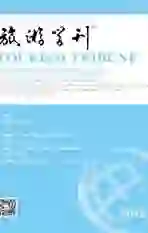On the Limits and Classification of the Concept of Tourism
2016-05-14XUJufeng
XU Jufeng
Abstract: The definition of tourism given by World Tourism Organization, though originally made for the purpose of statistics, has profound influence. It has not only applied to tourism statistics, but also well accepted by the circle of tourism studies and even adopted by tourism textbooks. Some scholars have questioned the WTO definition as confusing because it is overly broad. However, as a result of the UN background and semi-official feature of WTO, there is still lacking a systematical criticism of the WTO definition. This article aims to offer a critical analysis of both connotation and extension of the WTO definition of tourism. After reviewing past definitions and differentiations of the following three concepts: tourism, visit, travel, it shows that these related documents, under the influence of WTO definition as serving for the purpose of statistics, have contradicted, not only to the way how we define a concept logically and consistently, but also to the common use of these words, which hinders people from forming a rational cognition on what is tourism. If we continue adopting this statistic-oriented definition, we are doomed to fail to capture the real nature of tourism industry, and also the phenomenon of tourism. Moreover, such definition acts as an obstacle for the circle of tourism studies to pursue a tourism theory which could offer itself a concrete foundation. As an alternative, this article offers its own definition of both concepts of tourism and tourist, which is aimed at not only compatible with our common use of words, but also logical consistency. It discerns the distinct connotation and extension of the concept of tourism combining both perspectives of travel and leisure, and thus compares and differentiates the concept of tourism and the concept of travel at three different levels. Moreover, in order to clearly define the differences and relations between travel and tourism, we will introduce concepts of “pure tourism”, “quasi-tourism”, “pan-tourism” and “non-tourism”. At last, this article points out that some of the confusions and mistakes within Chinese circle of tourism studies have been exacerbated by translation error, such as the translation of the word “visitor” into Chinese as the same meaning as “tourist”.
Keywords: tourism; nature of tourism; boundary of tourism; tourism statistics
[责任编辑:吴巧红; 责任校对:王玉洁]
